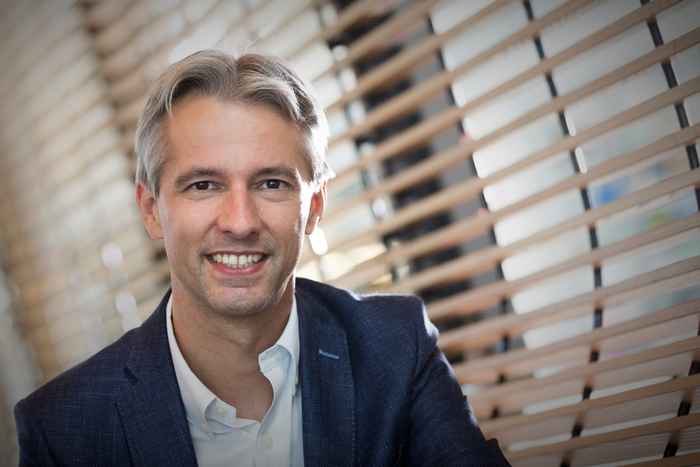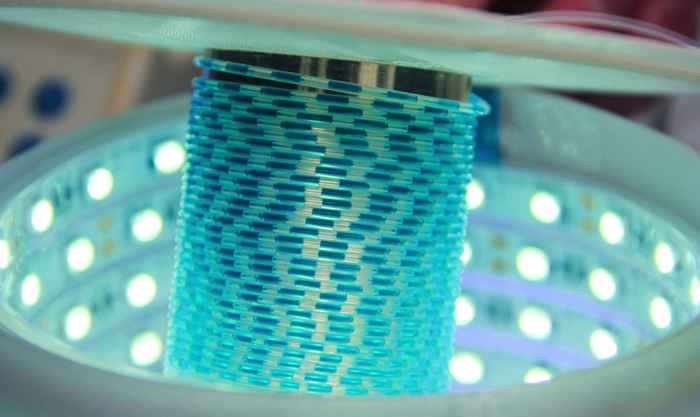ERC Consolidator Grant for Prof. Timothy Noël of Flow Chemistry
17 March 2022

Prof. Noël sees the ERC Consolidator Grant as a recognition of the great potential of flow technology to carry out innovative photocatalysis. ‘Being awarded this grant is an enormous boost for our research programme,’ he says, ‘as it enables us to focus on some of the most challenging aspects in flow photocatalysis.’ Noël aims to develop synthetic methods and technological tools that will provide a breakthrough in the selective functionalisation of strong carbon-hydrogen (C-H) bonds present in small organic molecules and biologically active molecules. ‘Ultimately, this will lead to the development of new methods to prepare functional and potentially life-saving molecules in a safer and more sustainable fashion.’
Mimicking nature's machinery
An essential part of synthetic organic chemistry is the conversion of raw materials into highly complex molecules with precisely tuned functionalities. Traditionally this is achieved through the conversion of reaction-prone molecular side-groups. This often calls for an elaborate synthesis scheme of multiple subsequent reaction steps that reduces the overall efficiency and spawns the formation of unwanted by-products.
Over the past decade, synthetic chemists have been able to develop alternative approaches that are able to directly functionalize far less reactive C–H bonds of organic molecules. ‘Mimicking nature’s machinery, a diverse set of powerful C–H bond functionalisation strategies have been developed that hold the promise of more efficient and more sustainable synthesis routes,’ Noël explains. ‘However, the selective functionalisation of so-called 'sp3' C–H bonds – the C-H bonds in saturated alkanes - is very challenging. For the chemical community, this still remains a type of reaction that we can only dream of.’

In his ERC Consolidator research, Noël will follow a novel approach that combines both chemical and technological tools. It is based on the use of a continuous-flow reactor where C(sp3)–H bonds are selectively activated in a process of photocatalytical hydrogen atom transfer (hence the project acronym Flow-HAT). ‘To be successful we will need to simultaneously solve important issues both from a chemical perspective, such as selectivity and functional group tolerance, and from a technological perspective, such as reproducibility, versatility and applicability.’
Independent research programme
The ERC Consolidator Grants are designed to support excellent researchers in a career state where they are consolidating their own independent research team and programme. Proposals are awarded on the basis of their ground-breaking nature, ambition and feasibility.
Prof. Noël will receive 2 million euros over a period of five years, enabling him to hire four PhD students (four-year commitment) and one postdoctoral researcher (two-year commitment). The research will be carried out at his Flow Chemistry group at the UvA's Van 't Hoff Institute for Molecular Sciences, where he serves as a full professor since September 2020. Currently, ten PhD's and five postdoctoral researchers are involved. As a result of the ERC grant and other recently awarded projects, Noël expects the group to almost double in size in the coming year. The mission of the Noel Research Group is to expand the available chemical space for synthetic organic chemists by embracing technology to the fullest extent. The focus is in particular on using flow chemistry to solve synthetic organic chemistry problems while simultaneously bridging academia to industry through the development of sustainable and scalable processes.
Professor Timothy Noël joined the University of Amsterdam as a full professor of Flow Chemistry at the Van 't Hoff Institute of Molecular Sciences in September 2020. He previously was an associate professor at Eindhoven University of Technology, a Fullbright scholar at the Massachusetts Institute of Technology (MIT) and a researcher at various institutions including Ghent University. Noël has won prestigious grants from programmes like the Veni and Vidi grant of the Dutch Research Council NWO and the Marie Curie Career Integration programme of the EU. He works closely with the chemical industry, including major pharmaceutical companies and SMEs. Noël was awarded prizes such as the Dechema Prize (2017), the Hoogewerff Youth Prize (2019), the IUPAC-ThalesNano prize for Flow Chemistry (2020) and the Gold Medal of the Royal Netherlands Chemistry Society KNCV (2021).